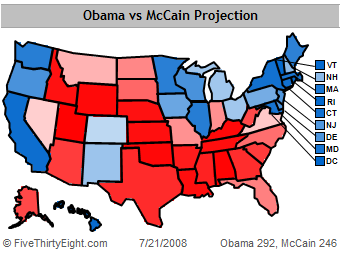Bullshit or Not: Hayek Version
There's an old sketch film called Amazon Women on the Moon and one of the bits is a parody of the old Leonard Nimoy show, "In Search Of..." called, "Bullshit or Not?" with the tagline "Bullshit or not? You decide." It's a line I like so much that I've stolen it for an irregular series of posts.
I've been thinking about Friedrich von Hayek's arguments since reading Cass Sunstein's "Infotopia." Hayek is one of the economic thinkers most associated with modern capitalism. He argues that knowledge is distributed in society, so that markets rather than elite groups of select individuals on central planning committees will be most likely to make most efficient use of that knowledge. Following that line, we have the following quotations:
In a civilized society it is indeed not so much the greater knowledge that the individual can acquire, as the greater benefit he receives from the knowledge posssessed by others, which is the cause of his ability to pursue an infinitely wider range of ends than merely the satisfaction of his most pressing physical needs. Indeed, a 'civilized' individual may be very ignorant, more ignorant than many a savage, and yet greatly benefit from the civilization in which he lives.and
It is, indeed, part of the liberal attitude to assume that, especially in the economic field, the self-regulating forces of the market will somehow bring about the required adjustments to new conditions, although no one can foretell how they will do this in a particular instance. There is perhaps no single factor contributing so much to people's frequent reluctance to let the market work as their inability to conceive how some necessary balance, between demand and supply, between exports and imports, or the like, will be brought about without deliberate control. The conservative feels safe and content only if he is assured that some higher wisdom watches and supervises change, only if he knows that some authority is is charged with keeping the change 'orderly'.Note, of course, that the terms "liberal" and "conservative" as Hayek uses them in this second quotation refer to classical liberalism and conservatism and are reversed with respect to our standard contemporary American usage.
So, bullshit or not? As usual, feel free to leave a single word or a dissertation.









